AGRICULTURE AND AGRO-PROCESSING SECTOR
Global Overview
The agriculture industry has experienced significant growth, with its global market size increasing from $13,272.75 billion in 2023 to $14,356.23 billion in 2024, at a compound annual growth rate (CAGR) of 8.2%. Projections indicate further expansion to $19,286.79 billion by 2028, driven by a CAGR of 7.7%. This growth is fuelled by technological advancements such as high-yield crop varieties, global trade, population growth, and rising incomes. Emerging trends include precision farming, modern farm management software, digital marketplaces for agricultural products, and innovative water management solutions.
In 2023, global agricultural export trade amounted to $1.9 trillion, growing at an annual average rate of 8% between 2019 and 2023. However, with agricultural imports valued at $2.04 trillion, the sector faced a trade deficit of $67.7 billion. Soybeans were the top-traded commodity globally (4.8% of exports), followed by food preparations, wheat, maize, and other staples. The United States (9.1%), Brazil (7.6%), and the Netherlands (6.3%) lead agricultural exports, while China (11%) and the USA (10%) are the largest import markets. South Africa contributes 0.7% to global agricultural exports and 0.34% to imports.
South African Overview
South Africa’s farming sector underpins a vertically integrated agro-processing industry, producing staples such as maize, wheat, sugar, and sunflower oil, as well as value-added products like fruit juice, peanut butter, and canned goods. Guided by the National Development Plan 2030 and the Agriculture and Agro-Processing Master Plan 2022, South Africa holds immense potential for agriculture through:
- Utilisation of underdeveloped farmland.
- Expansion of export-driven, high-value crops.
- Investment in integrated value chains.
- Growth of the agro-processing industry to drive inclusive growth, transformation, and job creation.
South Africa exports over 900 agricultural products to more than 200 countries, generating $13.2 billion in 2023. The Netherlands, United Kingdom, Botswana, China, and Namibia are key markets, contributing 33.8% to export earnings. Complying with Global GAP standards and sanitary regulations, the country’s top exports comprising of maize, oranges, grapes, mandarins, apples, wine, lemons, soya beans, sugar, and wool, constitute 40% of export earnings.
KwaZulu-Natal Overview
KwaZulu-Natal (KZN) boasts 6.5 million hectares of agricultural land, with 82% dedicated to livestock production and 18% classified as arable land. Fertile soils and reliable rainfall position KZN as South Africa’s agricultural hub, contributing 26% to the national gross agricultural value added. Key subsectors include:
- Crops: Sugarcane and maize.
- Horticulture: Sub-tropical fruits (pineapples, bananas, cashew nuts), potatoes, and vegetables.
- Livestock: Beef, mutton, pork, and poultry.
- Forestry: SA pine, eucalyptus, black wattle, and poplar.
In 2023, KZN exported R8.6 billion worth of agricultural products, primarily to Africa (55.7%), Asia (29.2%), and Europe (10.2%). Imports totalled R7.1 billion, originating from Europe (44.1%), Oceania (19.4%), Asia (12.7%), and Africa (12.4%). The province achieved a trade surplus of R1.4 billion.
Despite this success, significant untapped potential remains. Sustainable farming practices and advanced technologies can dramatically enhance production, unlocking the province’s full agricultural potential.
Investment Opportunities in KwaZulu-Natal
KZN offers a range of opportunities to investors in agriculture and agro-processing, including:
- Beverages: Production, packaging, and export of fruit-based drinks and indigenous teas.
- Biofuels: Development of biodiesel, bioethanol, and biogas projects.
- Capacity Building: Programs to enhance productivity, promote innovation, build resilience, and empower farmers and communities.
- Cassava Production: Processing cassava into starch, high-value flour, and biofuels for local and export markets.
- Agri-Hubs: Establishment of fresh produce, livestock, broiler, dairy, and grain hubs with facilities for aggregation, compliance, and logistics.
- 4IR Infrastructure: Adoption of precision farming technologies like smart sensors, drones, and automated machinery.
- Dairy Expansion: Smart technologies and high-value dairy products for domestic and export markets.
- Forestry and Timber: Investments in furniture, paper, and biodegradable packaging industries.
- Aquaculture: Development of freshwater and marine aquaculture industries, including fish feed production.
- High-Value Natural Fibers: Production of organic cotton, hemp, and downstream mohair products.
- Livestock Farming: Poultry, cattle, goat, sheep, and pig farming, along with specialty meat processing and livestock feed production.
- Macadamia Farming: High-value processing into edible oils and superfoods.
By leveraging its abundant resources and strategic location, KwaZulu-Natal is primed for transformative agricultural growth, offering lucrative opportunities for investors.
